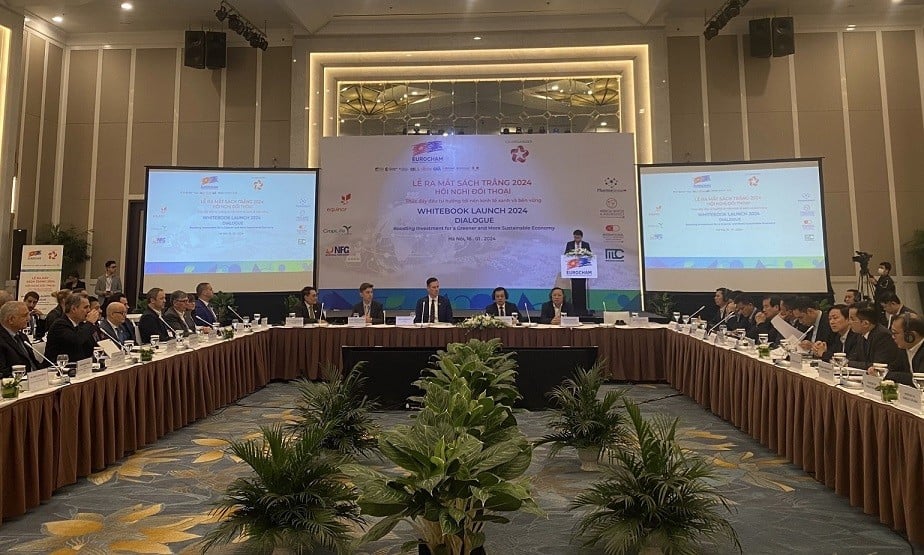 |
| Overview of the EuroCham's 15th Annual White Book Launch Ceremony. (Photo: GT) |
EuroCham's White Paper 2024, titled "Promoting Investment for a Green and Sustainable Economy", provides insights into Vietnam's business policy from the European business community.
This is a collaborative brief that sets out recommendations to promote investment and trade priorities to boost Vietnam’s growth. The publication provides Vietnamese and European policymakers, businesses, academics and other stakeholders with a practical perspective on key economic issues.
By informing discussions among different interest groups, the White Paper plays an important role in shaping future investment initiatives and strategies between Vietnam and Europe.
According to EuroCham, the Whitebook is an invaluable resource, enriched by input from EuroCham’s 19 Sector Committees. Each of these Committees acts as a focused group of experts, providing in-depth knowledge and making policy recommendations.
Their expertise spans a wide range of areas, from the rapidly growing digital economy to green, sustainable growth initiatives, making the White Paper more than just a collection of research, but a practical guide.
In addition, the White Paper provides practical solutions to the challenges European companies face in Vietnam and provides guidance for both policy makers and business leaders as they operate in Vietnam's regulatory and growth environment.
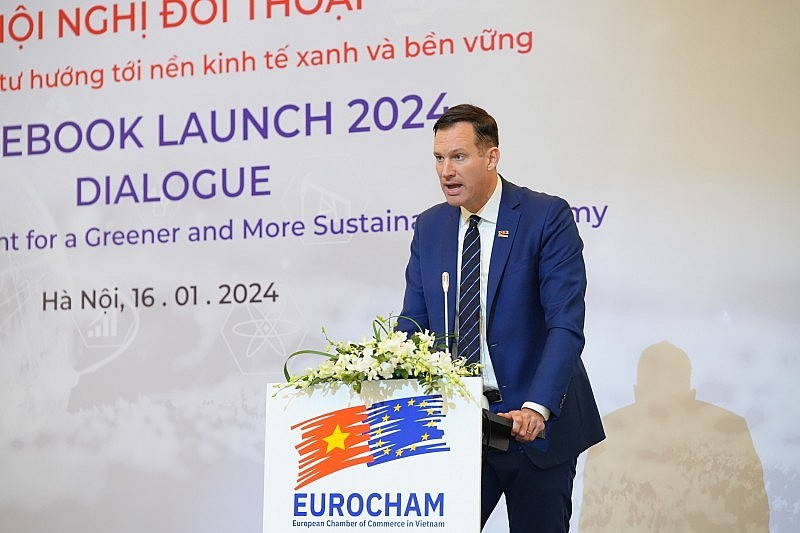 |
| EuroCham Chairman Gabor Fluit speaking at the event. (Source: EuroCham) |
At the event, EuroCham Chairman Gabor Fluit commented that despite the complex global economy, Vietnam's economy still shows resilience and flexibility.
“An important sign of this is the increase in European investment in Vietnam. Nestlé Vietnam has just announced an additional investment of US$100 million. This underlines Europe’s confidence in Vietnam,” he said.
However, according to the Chairman of EuroCham, 2024 will have its own difficulties, the economic environment will not be as favorable as before 2020.
Mr. Gabor Fluit noted that Vietnam faces risks such as slowing imports and exports, complex supply chains, and unforeseen difficulties. As the country faces current challenges and opportunities, adaptive policies will be key.
Outlining the challenges faced by European companies and making recommendations to policy makers, Eurocham Construction Subcommittee Chairman Michel Cassagnes suggested simplifying the equipment certification process to avoid project delays. Recognizing both international and local equivalent standards could allow for faster approvals while ensuring safety.
“Regarding fire protection systems for renovation works, we recommend harmonizing policies that allow for rapid confirmation of suitable materials, whether domestic or imported. This will facilitate the implementation of construction progress through greater regulatory transparency,” he suggested.
Regarding the reform of regulations and administrative procedures, Mr. Ngo Hai Phan, Director of the Department of Administrative Procedure Control (Government Office) said that in 2023, 628 business regulations were cut in 53 legal documents. In 2024, at least 20% of internal administrative procedures and 20% of compliance costs will be cut and simplified. By 2025, the goal is to complete the decentralization of authority to handle 699 administrative procedures in 100 fields.
Mr. Phan suggested that the business community synthesize difficulties and obstacles in mechanisms, policies, and administrative procedures that create barriers, and periodically or suddenly report to the Government Office - the standing agency of the Working Group and the Advisory Council.
Source



![[Photo] National Assembly Chairman works with leaders of Can Tho city, Hau Giang and Soc Trang provinces](https://vphoto.vietnam.vn/thumb/1200x675/vietnam/resource/IMAGE/2025/5/11/c40b0aead4bd43c8ba1f48d2de40720e)
![[Photo] Prime Minister Pham Minh Chinh chairs the fourth meeting of the Steering Committee for Eliminating Temporary and Dilapidated Houses](https://vphoto.vietnam.vn/thumb/1200x675/vietnam/resource/IMAGE/2025/5/11/e64c18fd03984747ba213053c9bf5c5a)

![[Photo] The moment Harry Kane lifted the Bundesliga trophy for the first time](https://vphoto.vietnam.vn/thumb/1200x675/vietnam/resource/IMAGE/2025/5/11/68e4a433c079457b9e84dd4b9fa694fe)







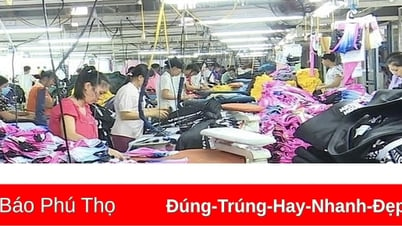
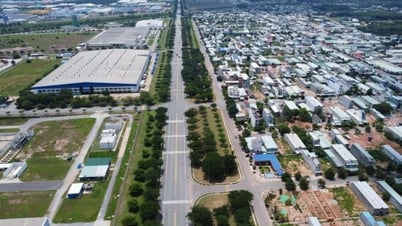





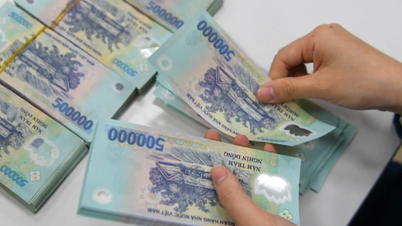








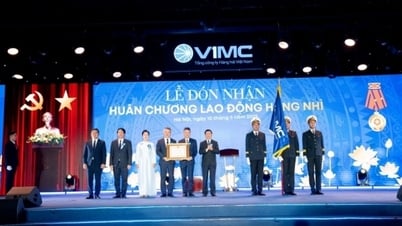
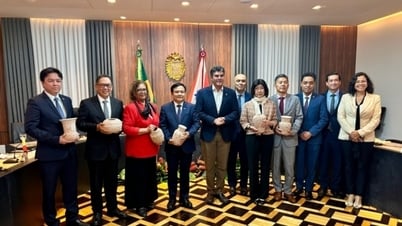


![[Photo] Discover the beautiful scenery of Wulingyuan in Zhangjiajie, China](https://vphoto.vietnam.vn/thumb/1200x675/vietnam/resource/IMAGE/2025/5/11/1207318fb0b0467fb0f5ea4869da5517)






























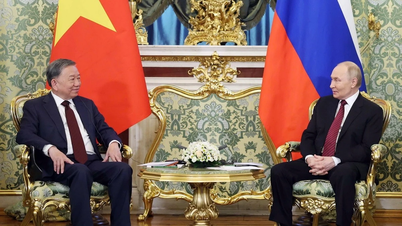


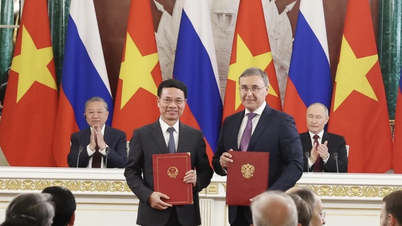

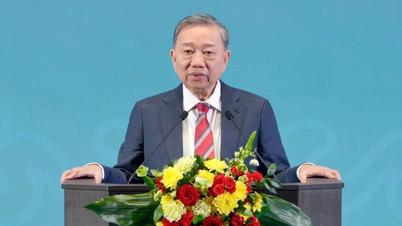











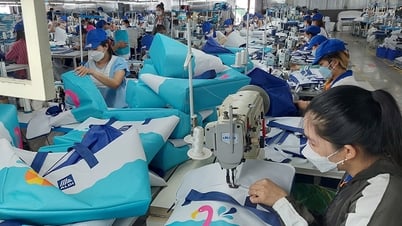
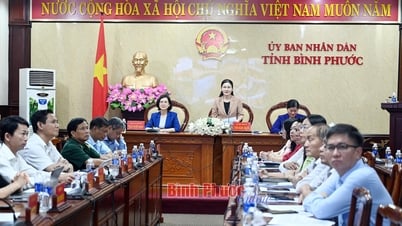



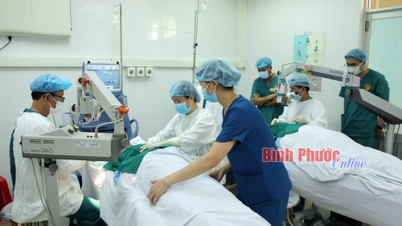


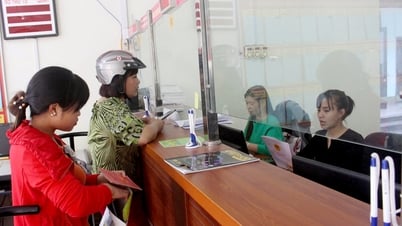











Comment (0)